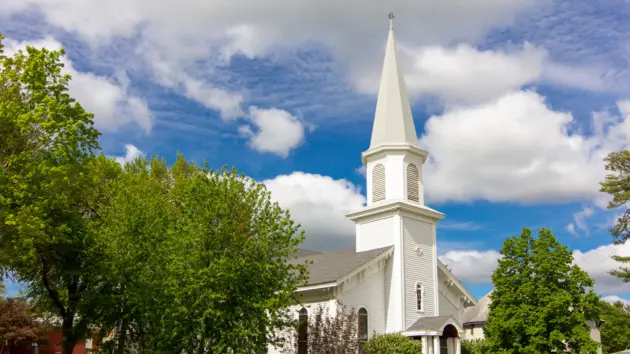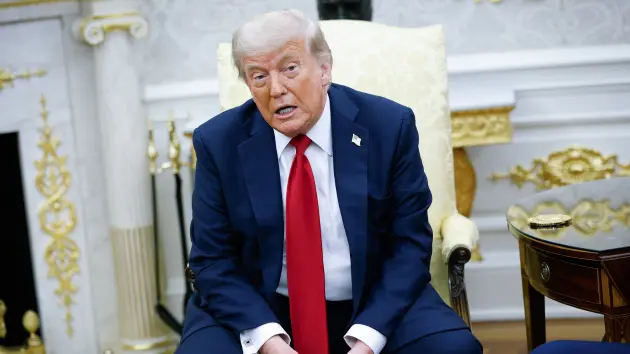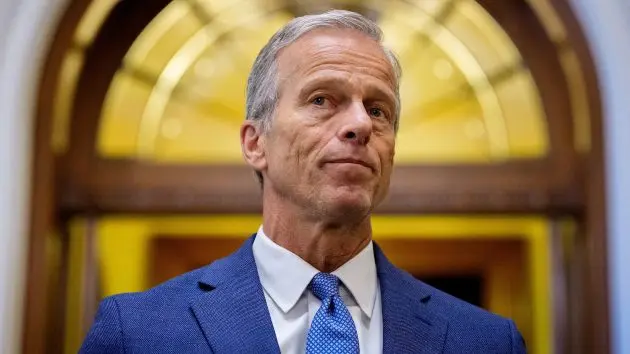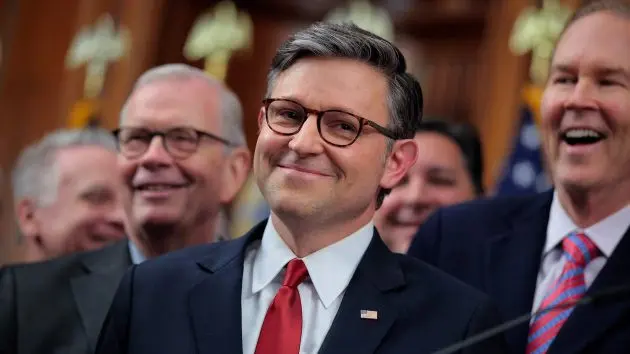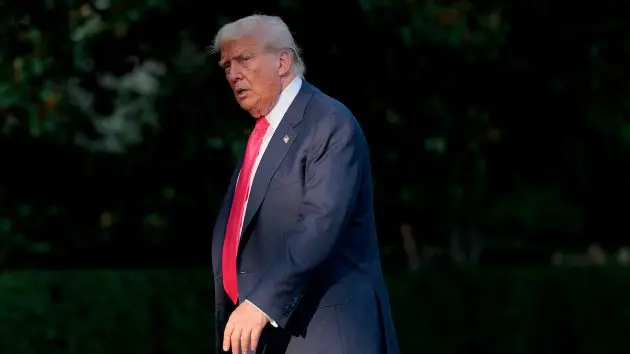(WASHINGTON) — President Donald Trump is praising an Internal Revenue Service’s court filing, which effectively clears the way for churches to endorse political candidates — a reversal of decades of legal precedent.
Yet half a dozen religious leaders told ABC News they didn’t foresee a large increase in political endorsements from their peers, despite last week’s IRS court filing. The filing said it would not revoke nonprofit status from two Texas churches, Sand Springs Church and First Baptist Church Waskom, for doing so.
The filing formalizes for the first time a lack of enforcement of the 1954 Johnson Amendment, which prohibits nonprofits from endorsing or opposing political candidates if they want to remain tax exempt. Both political parties have tested the line in trying to harness the power of the pulpit, with many Republicans wooing evangelical leaders while Democrats often try to curry favor with Black churches.
“God is once again welcomed back into our public square,” Trump said of the filing during a White House Faith Office summit on Monday.
The president has opposed the Johnson Amendment since his first term. He said he asked religious leaders for their endorsements while running in 2015, but came up against the barrier of the Johnson amendment.
“I said, ‘you have more power than anybody, but you’re not allowed to use your power.’ I said, ‘we’re going to get rid of that because people want to hear what you have to say more than anybody else,'” Trump said Monday. “You were even afraid to talk about it. But they’re not afraid any longer, and I think they appreciate it.”
Tax experts predict the filing could transform how money flows around elections, making houses of worship a way to avoid both taxes and transparency for campaign finances.
Ellen Aprill, a professor emerita of tax law at Loyola Marymount University Law School, said the filing could open the door to political campaigns channeling money through churches to take advantage of their tax-exempt status and lower application and reporting requirements.
Unlike other 501c3 organizations, churches are not required to file 990 forms disclosing financial information, leadership and activities. They also qualify automatically for tax exemption — while other nonprofits have to apply.
“One of my concerns, and others of us in this area, is this will encourage the creation of fraudulent churches who want to be able to get tax deductible money to engage in opposing or supporting candidates … so they don’t have to disclose any other campaign intervention activities,” Aprill said.
Many evangelical Christians viewed the filing as a win for free-speech rights.
Robert Jeffress, senior pastor of the 14,000-member First Baptist Church in Dallas, praised the filing and said he “personally thanked President Trump” for the outcome.
“This would have never happened without the strong leadership of our great President Donald Trump!” Jeffress wrote in an X post. “Government has NO BUSINESS regulating what is said in pulpits!”
Jeffress was on Trump’s Evangelical Executive Advisory Board during his first campaign and had expressed support for the president in the leadup to the 2024 election, which he said led the IRS to investigate his church. Jeffress’ church is distinct from First Baptist Church Waskom, the plaintiff in the case against the IRS.
Cary Gordon, senior pastor and president at Cornerstone Church in Sioux City, Iowa, said he thought “anyone with half a brain” could see that “the Johnson Amendment was unconstitutional.”
A longtime opponent of the amendment, Gordon has said since 2010 that he hopes the IRS would sue him for his political speech so that he could fight the agency in court. That year, Gordon led an effort organizing religious leaders across Iowa to oppose retention for three Iowa Supreme Court Justices who supported same-sex marriage. The IRS has not sued Gordon.
Gordon said although he thinks “hardly any pastors in the country will ever” endorse a candidate, the filing could allow religious leaders to address politics more directly.
“The issue is not, ‘oh no, they’re going to endorse someone.’ It’s really about free speech and being able to communicate on any issue someone might perceive as political in a sermon, which must be done because all of our problems are moral, all of our problems are theological,” he said.
Brad Sherman, a former Iowa state representative who founded Solid Rock Christian Church in Coralville, Iowa, and is now running for governor, said he thought the filing was “long overdue,” but he didn’t anticipate a surge in endorsements.
“There are other reasons why pastors and Christian leaders do not endorse candidates,” Sherman said, adding that some leaders may be wary of pushback from their congregations.
Regarding whether the filing would lead him to consider seeking endorsements from religious leaders during his own campaign, he said, “I haven’t really thought much about it yet, but yes, it may influence that to some degree.”
Reactions from leaders of Black churches were more mixed.
Rev. Thomas Bowen, who served in the Biden White House as a faith liaison and preaches in Black churches both in Ohio and D.C., said he was concerned the filing could risk turning churches into “campaign surrogates.”
“For me, the new ruling opens the doors to money that’s just not transparent, money that can be used for political influence,” Bowen said. “The fear that our sacred spaces will be at risk of becoming these stages for unchecked influence causes me to tell folk to tread carefully … Moral authority is sacred and it must never be sold for access.”
Unlike Bowen, Pastor Jamal Bryant said he approved of the filing. Bryant heads a congregation with more than 10,000 members at New Birth Missionary Baptist Church in Stonecrest, Georgia, which hosted Democratic nominee Kamala Harris when she visited the state during the 2024 presidential elections.
Bryant said he would “absolutely” consider explicitly endorsing political candidates from the pulpit, including in the upcoming 2026 midterm elections.
“There’s a whole lot on the line,” he said. “All of America is going to be leaning in with intentionality for the midterm election on who best will speak for the masses.”
Copyright © 2025, ABC Audio. All rights reserved.


